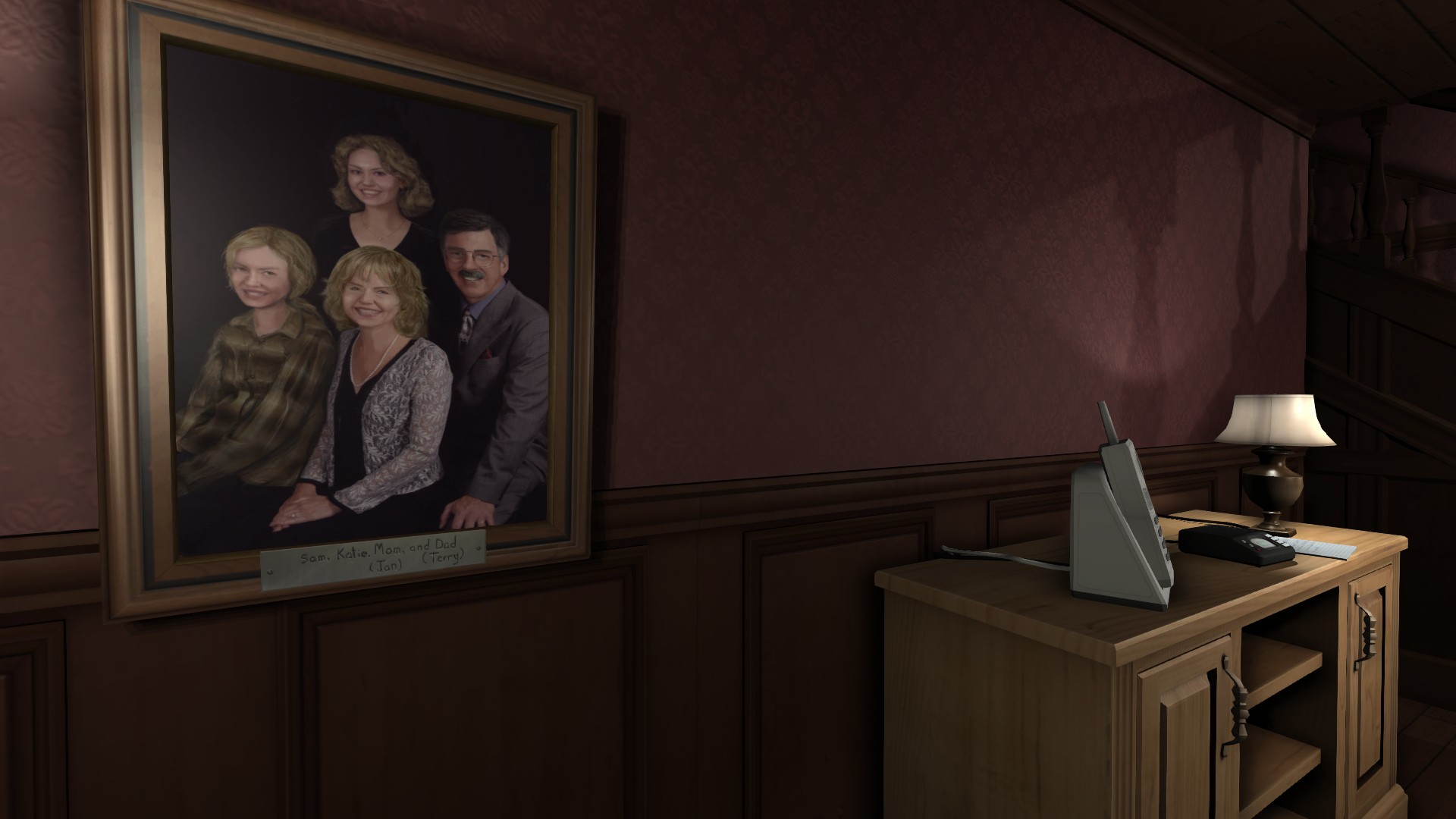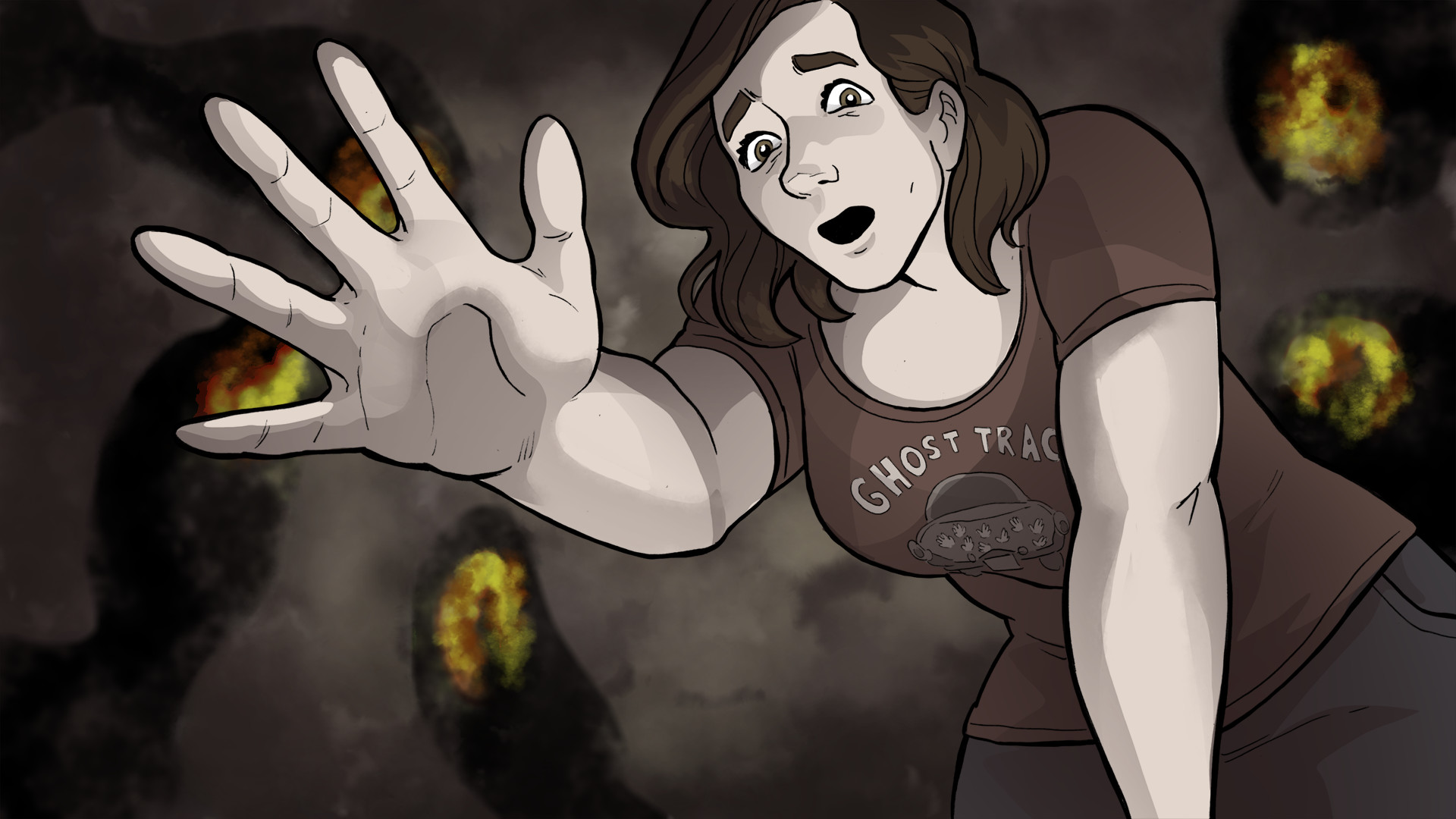
How Gone Home Subverts Queerness and Trauma
Note: This article contains discussion of sexual abuse. Take care when reading.
Gone Home is not a horror game.
Not in the traditional sense, anyway — there’s no monster stalking the player character, no life-threatening terror lurking in the game’s many locked rooms. In fact, the game’s revelations tell quite a hopeful, if bittersweet story about a young girl, Samantha Greenbriar, who has run away with her girlfriend, Lonnie, to start a life away from her less-than-accepting family.
But there is indeed horror to be found in Gone Home, and it’s the kind of horror that makes you wish you were running from a Mr. X or a Pyramid Head.
The player character in Gone Home, Katie Greenbriar, is tasked with exploring the home of her late Uncle Oscar, which her family has moved into while she was away at school. The rest of Katie’s family, including kid sister Samantha, dad Terry and mom Janice, are nowhere to be found. While at first it appears something nefarious or supernatural has happened, exploring the house and finding notes and recordings (like many survival horror games) reveals that her parents are away to get couples’ counseling and Samantha has run away with her girlfriend.
At first, it’s a relief to find that everyone’s okay, although it’s easy to worry that Samantha, who came of age while falling in love with Lonnie, is in over her head, especially since the game takes place in the less open-minded ’90s. But the core of Gone Home is about exploring the house and Katie’s family, and looking into Terry’s past has downright horrific implications.

Terry, a failed novelist who now writes reviews for various electronics, seems to be unhappy living in his uncle’s home. Exploring his things reveals that his failed science fiction novel, involving a man time-traveling to 1963 to stop the Kennedy assassination, is actually a metaphor for a deep and unresolved trauma that occurred in Terry’s own past.
There’s a darkened corner in the basement of Uncle Oscar’s home with a safe and a small walk-in closet. Finding the combination to open the safe reveals documents including an apology to Terry from Oscar for an unnamed indiscretion, as well as hints that Terry was molested by Oscar in this house as a child in 1963.
It is without a doubt Gone Home’s most devastating revelation, and, in the opinion of this writer, one that suggests there’s more to Terry’s homophobia than just societal woes. Throughout the house, there are notes and documents showing that Terry and Janice are not supportive of Samantha’s sexual orientation and relationship with Lonnie. But Samantha is unwavering — she doesn’t have shame about who she is, and she doesn’t care what her parents think. Finding Lonnie also meant finding herself. She found a new group of friends, new interests, and love. She wasn’t going to let being gay ruin her life.
Being molested has nothing to do with being queer. But in the 1990s, when discussion of sexuality and trauma was still very primitive, it’s easy to see why Terry might equate the two.
Gone Home is a powerful examination of both trauma and joy. Terry and Samantha’s journeys couldn’t be more different. But we’re so often taught in entertainment that the queer person has to suffer, and Gone Home flipped that on its head.




